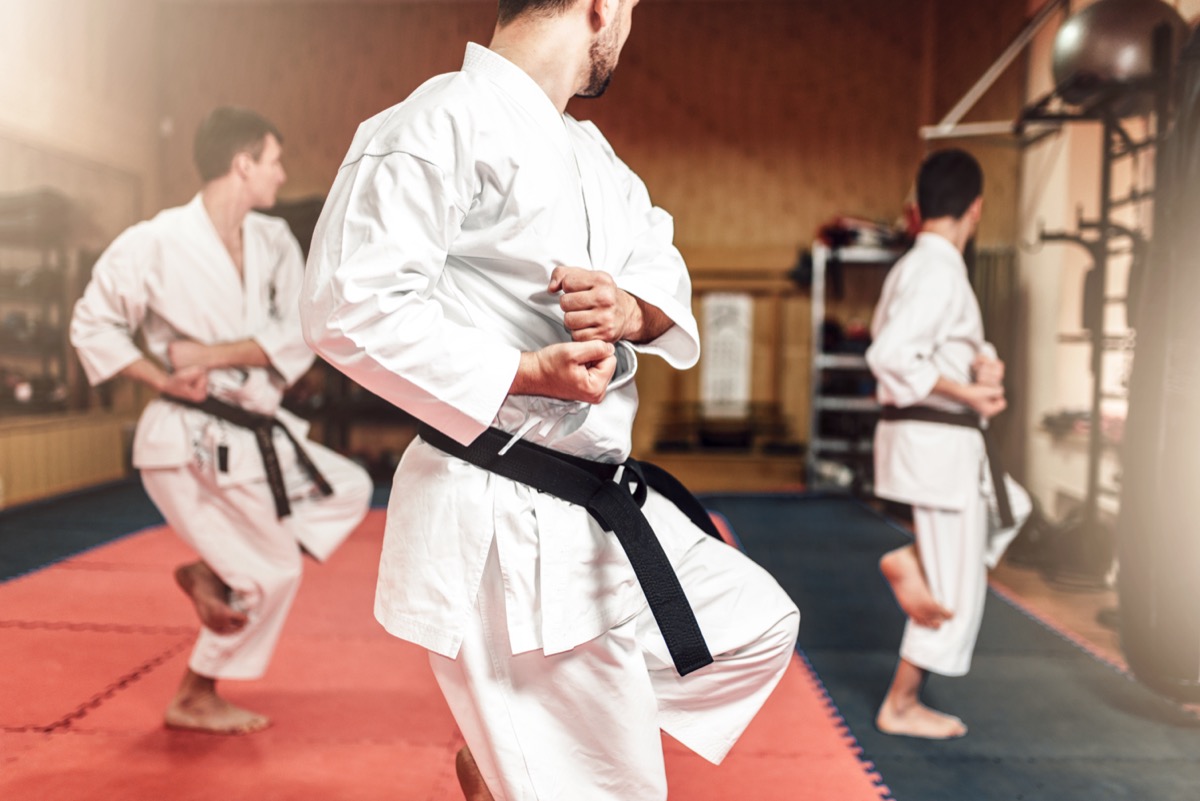
Martial arts training is not only beneficial for physical fitness and self-defense skills but also for enhancing cognitive abilities. The mental demands, focus, and discipline required in martial arts practice can positively impact various aspects of cognitive function. In this article, we will explore how martial arts can contribute to improving cognitive abilities and overall mental well-being.
Enhanced Focus and Concentration: Martial arts training demands a high level of focus and concentration. Whether it’s learning complex techniques, executing precise movements, or sparring with opponents, maintaining mental clarity is crucial. Through regular practice, individuals develop the ability to block out distractions, stay present in the moment, and concentrate on the task at hand. This enhanced focus can extend beyond the training mat and be applied to other areas of life, such as work, academics, and problem-solving.
Improved Memory and Learning: Martial arts training involves memorizing sequences of movements, techniques, and forms. This constant repetition and reinforcement of patterns can improve memory and cognitive processing. Learning and recalling complex sequences of movements require mental agility and the ability to adapt quickly. This aspect of martial arts training can enhance memory retention and retrieval, which can be applied to academic studies or other areas requiring information recall.
Coordination and Motor Skills: Martial arts training requires precise coordination of movements, fine motor skills, and body awareness. Practicing techniques and performing intricate patterns help develop kinesthetic intelligence and spatial awareness. These skills contribute to better motor coordination and improved cognitive abilities. The integration of mind and body in martial arts training enhances the neural connections and communication between different areas of the brain, resulting in overall improved cognitive function.
Stress Reduction and Mental Well-being: Martial arts training can be an effective stress management tool, which in turn benefits cognitive abilities. Engaging in physical activity releases endorphins, which are natural mood enhancers. Regular participation in martial arts helps reduce stress and anxiety levels, providing a calmer and more focused mental state. Managing stress and maintaining me
ntal well-being are essential for optimal cognitive function and overall brain health.
Discipline and Self-regulation: Martial arts training instills discipline, self-control, and self-regulation, all of which contribute to improved cognitive abilities. Following a structured training regimen, adhering to rules and protocols, and learning to control emotions and impulses are integral parts of martial arts practice. These skills promote self-discipline, self-management, and the ability to make informed decisions. The development of discipline and self-regulation carries over to other aspects of life and can positively impact academic or professional achievements.
Mental Resilience and Problem-solving: Martial arts training challenges individuals to overcome obstacles and solve problems in real-time. Practitioners learn to adapt to different situations, analyze opponents’ movements, and develop effective strategies. These problem-solving skills foster mental resilience, flexibility, and critical thinking. The ability to assess and respond to challenges in a calm and focused manner is valuable not only in martial arts but also in everyday life situations.
Social Interaction and Cognitive Stimulation: Martial arts training often involves group classes and interactions with instructors and fellow practitioners. Engaging in social interactions stimulates cognitive abilities such as communication, empathy, and social awareness. Martial arts classes provide an environment for cognitive stimulation through discussions, collaborative learning, and engaging in structured partner drills. This social aspect of martial arts training can contribute to improved cognitive function and overall mental well-being.
In conclusion, martial arts training offers numerous cognitive benefits, including enhanced focus and concentration, improved memory and learning, better coordination and motor skills, stress reduction, discipline, self-regulation, mental resilience, problem-solving, and social interaction. The combination of physical activity, mental demands, and discipline in martial arts practice promotes overall cognitive function and mental well-being. Whether you’re seeking to improve cognitive abilities or enhance your overall mental performance.
Article reposted with permission from Go2Karate.com.